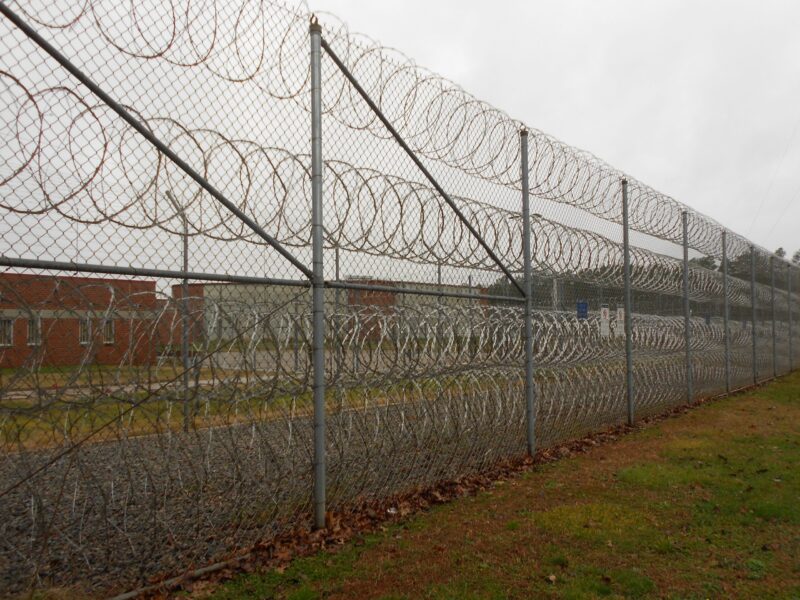Rebuilding relationships after prison can be a challenging yet profoundly rewarding journey. For many, the transition back to society brings with it a complex tapestry of emotions, lingering doubts, and hopeful aspirations.
Whether it’s mending ties with family, rekindling friendships, or establishing new connections, the path to re-establishing trust and intimacy is often fraught with both obstacles and opportunities. Each relationship bears its own unique history, and understanding the nuances involved is essential for successful reintegration.
As we delve into the best practices for navigating this delicate landscape, we’ll explore strategies that not only foster healing but also encourage personal growth, resilience, and genuine connection. Its a quest that requires patience and empathy, both for oneself and for others, as each step forward holds the potential to unlock a brighter, more fulfilling future.
Understanding the Impact of Incarceration

The impact of incarceration extends far beyond prison walls, reverberating through the lives of individuals and their families. Upon release, many ex-offenders struggle with emotional baggage that can weigh heavily on relationships.
The stigma of a criminal record often becomes a sharp-edged barrier, making it difficult to regain trust and forge new connections. Moreover, the time spent behind bars can create a chasm between the individual and their loved ones, resulting in feelings of isolation or resentment.
Adjusting to the complexities of daily life, such as navigating employment opportunities and societal norms, only adds to this pressure. Yet, amidst these challenges lies the possibility of healing and reconciliation, as open communication and understanding can sow the seeds of rebuilding.
The journey is not easy, but with patience and support, it can lead to profound transformations—a testament to resilience and the enduring power of human connection.
Self-Reflection and Personal Growth

Self-reflection is an essential component of personal growth, especially for those seeking to rebuild relationships after incarceration. It requires a deep dive into ones thoughts, feelings, and past behaviors, prompting individuals to confront uncomfortable truths.
This inner journey isnt just about understanding what went wrong; its about recognizing the patterns that led to the breakdown of trust and connection with loved ones. In this process, the individual may grapple with feelings of guilt or shame, but such emotions can be transformative when harnessed for positive change.
Each moment of contemplation offers a chance to learn—not just about oneself, but about how one’s actions echoed in the lives of others. Through this honest assessment, a person can cultivate empathy and resilience, emerging with a renewed sense of purpose.
They become better equipped to communicate their vulnerabilities and aspirations to those they wish to reconnect with, paving the way for authentic interactions grounded in mutual understanding and respect. In this light, self-reflection becomes not just a personal endeavor, but a vital step towards healing and rebuilding the trust that lies at the heart of reconnection.
Open and Honest Communication

Open and honest communication is the cornerstone of rebuilding relationships post-prison, acting as a bridge between newfound freedom and the past. It begins with a willingness to share feelings, thoughts, and fears—a daunting task for many.
Imagine sitting across from a loved one, the weight of unspoken words hanging in the air, both of you yearning for connection yet unsure how to traverse the emotional landscape. Vulnerability plays a crucial role here; it encourages the sharing of experiences, revealing not just the struggles faced during incarceration but also the dreams for the future.
Its essential to listen actively, to truly absorb the words spoken as well as the emotions underlying them. This creates a safe space, allowing both parties to navigate their evolving dynamics without fear of judgment.
Practicing transparency fosters trust, transforming past misunderstandings into an opportunity for growth—an invaluable step towards not just restoration, but thriving together in a renewed relationship.
Conclusion
In conclusion, rebuilding relationships post-prison is a nuanced and multifaceted journey that requires patience, understanding, and commitment from all parties involved. Individuals, including black men who have faced the unique challenges of incarceration, must navigate societal stigmas while striving to reconnect with loved ones and establish new support networks. Open communication, empathy, and consistent actions are essential to restoring trust and fostering healthy dynamics.
By implementing best practices such as setting realistic expectations, seeking professional guidance, and prioritizing personal growth, individuals can pave their way towards meaningful relationships and successful reintegration into their communities. Ultimately, the effort to rebuild not only transforms personal lives but can also contribute to a more inclusive society that recognizes the potential for change and redemption.


